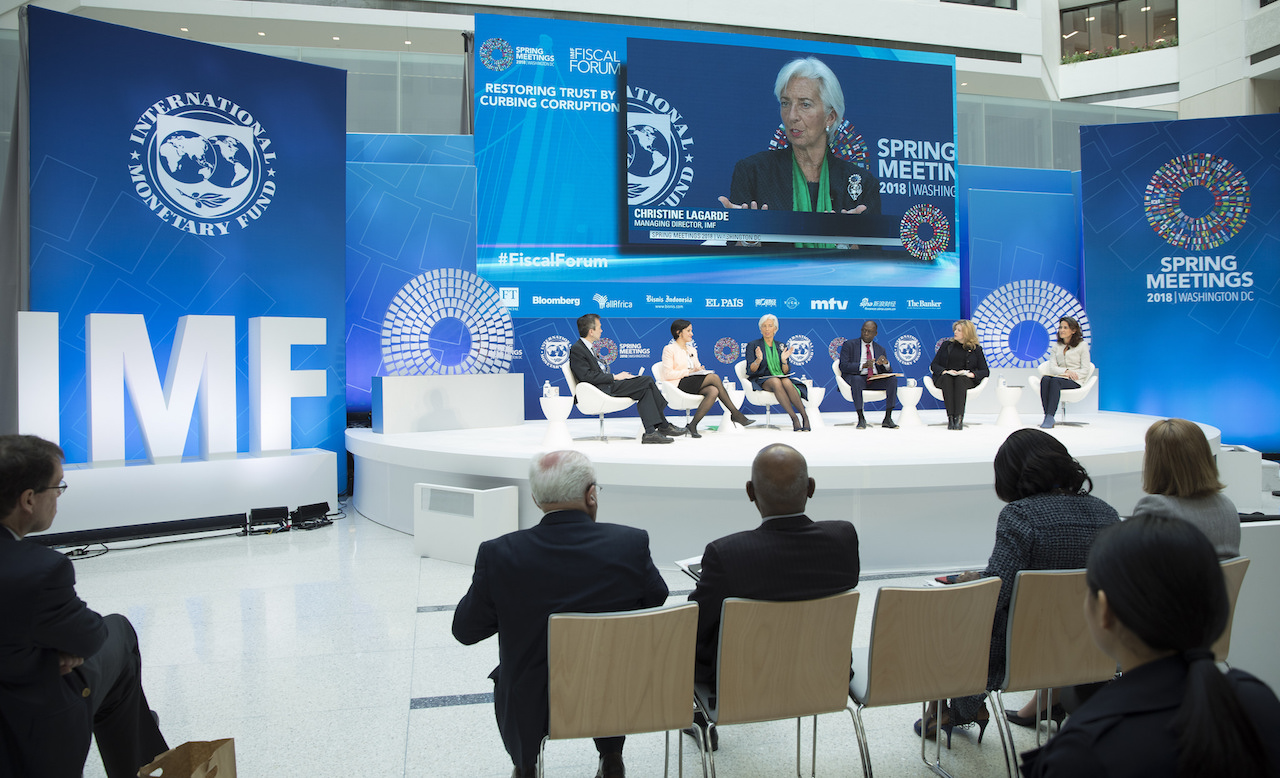Published
4 years agoon
By
Joe Pee
The International Monetary Fund (IMF) is predicting that Ghana’s fiscal deficit will reach 16.4 percent of GDP this year, the largest in the country’s history.
The record deficit projection comes on the back of the devastating effect of the coronavirus pandemic, which caused a huge shortfall in government’s revenues amidst bigger-than-expected spending in a frantic effort to contain the spread of the virus.
The extra expenditure includes the government’s provision of free electricity and water for Ghanaians to cope with the disruption caused by the virus, as well as loans to enterprises.
Finance Minister Ken Ofori-Atta, in his mid-year budget presented in July, revised the country’s 2020 fiscal deficit projection from 4.7 per cent to 11.4 per cent of GDP to accommodate the fiscal impact of the pandemic.
The Fund’s bigger projection, which was contained in its October 2020 Fiscal Monitor publication, appears to take into account the expenses incurred by the government in cleaning up the financial and energy sectors – costs which the government has consistently excluded from its fiscal deficit calculation.
The projection is not only the largest in Ghana’s history, it also means the country will see the biggest fiscal deficit in sub-Saharan Africa.
Also, the report projects that the government’s debt will increase from 62.8 percent of GDP in 2019 to 76.7 percent in 2020, before declining to 74.7 percent in 2021.
According to economist Dr. Theo Acheampong, the rising debt raises significant debt sustainability concerns, especially for external debt servicing, with various Eurobond coupon payments due in the coming months.
The Fund stated that the fiscal deficit will decline to 9.3 percent of GDP in 2021, before easing to 6.3 percent of GDP in 2025 – meaning it will take longer than the government currently expects to restore compliance with the 5-percent-of-GDP deficit rule.
Fiscal reforms
In an interview with Business24 published in September, IMF Resident Representative Albert Touna Mama called on the government to pursue a wide range of fiscal reforms to deal with the stress placed on the economy by the COVID-19 pandemic.
He said Ghana, like most countries, has seen a sharp accumulation of public debt in a bid to battle a crisis unprecedented in modern economic history.
He argued that the government should, as much as possible, prioritise its spending in battling the impact of the virus.


Video: Nana Tonardo Sprays Cash on Nana Agradaa During Church Visit


Juliet Ibrahim Champions Gender Equality with HER STEAM Initiative


Video: Funny Face Flees After Learning Lady Shares Name with His Ex


Video: Lisa Quama Revives Ghana’s Independence Spirit with Stirring Nkrumah Reenactment


Tiwa Savage Eyes Mogul Status with Bold Plans for Music and Film Industry Expansion


The 28th February Crossroads Shooting: The Spark That Ignited Ghana’s Independence


Mahama Vows to Usher in Era of Fiscal Discipline and National Renewal


Elon Musk changes his name to Kekius Maximus on X


Mahama Calls for Unity Among Political Parties to Drive Ghana’s Renaissance

























